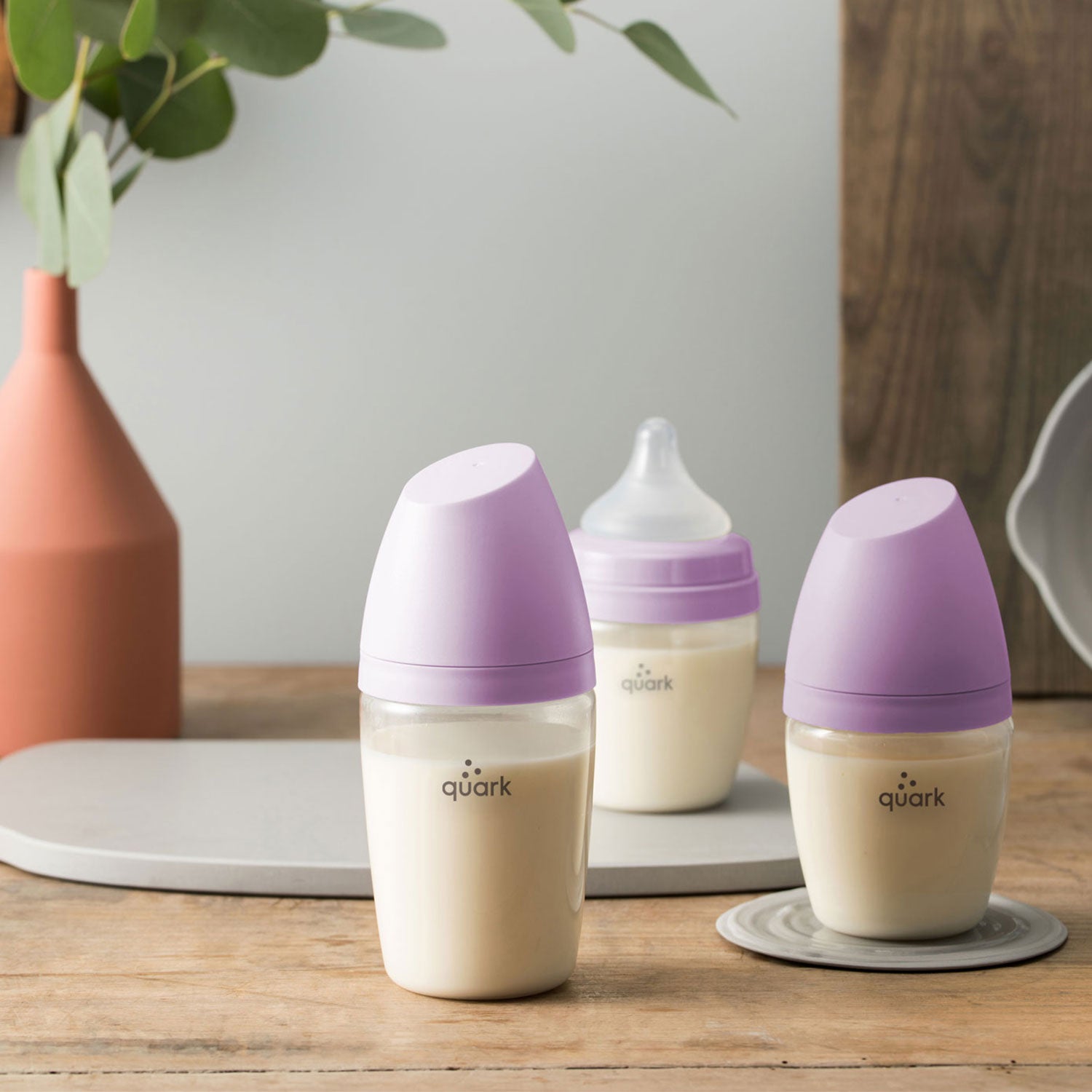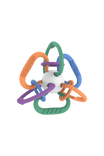Bringing a newborn home feels like stepping into uncharted territory: one moment you're staring at those impossibly tiny fingers in wonder, the next you're second-guessing every little sound they make. The first two weeks of your baby's life are a whirlwind of firsts for both of you. What you're experiencing: that overwhelming love mixed with the feeling like you're constantly learning on the fly, is completely normal and shared by parents worldwide
These initial 14 days also represent a critical window for your baby's physical, cognitive, and emotional development. This comprehensive newborn care guide covers everything from feeding schedules and sleep patterns to developmental milestones and parental well-being. You'll discover essential newborn care tips, understand infant development stages, and learn proven techniques for soothing your baby during those challenging first weeks at home.
1. Weight Recovery and Early Growth Patterns
Here's something that catches many new parents off guard: your baby will actually lose weight in those first few days. This often triggers worry, but it's completely expected and normal.
Most newborns lose 5–10% of their birth weight within the first 3–5 days. Think of it as your baby's body adjusting to life outside the womb, shedding excess fluid and learning how to coordinate feeding. By the end of week two, most babies not only regain their birth weight but often exceed it.
What to expect:
Daily Weight Gain: Approximately 20–30 grams per day (about 0.7–1 oz daily)
Feeding Frequency: Your baby will want to eat 8–12 times every 24 hours—yes, even through the night
Growth Spurts: Many babies hit their first growth spurt around days 7–10, which means extra hungry days
The key here isn't to watch the clock but to watch your baby. Whether you're breastfeeding or formula-feeding, follow your infant's cues rather than a rigid schedule.
2. Rapid Neurological Development and Sensory Engagement
Your baby's brain is working overtime right now, growing faster than it ever will again. In these first two weeks, neural connections are forming at an astounding rate, especially in response to your voice and touch.
Here's how you can support this incredible development:
Talk to your baby constantly. You might feel silly having a one-sided conversation, but your voice is the most captivating sound in their world right now. That instinctive "parent voice" with its higher pitch and exaggerated expressions isn't silly, as babies are neurologically wired to respond to it.
Read aloud daily, even if it's just the morning news or your favourite book. Your baby is absorbing the rhythm and melody of language long before understanding words.
If your family speaks multiple languages, now is the perfect time to use them all. Early exposure to different languages builds cognitive flexibility that research shows lasts a lifetime.
Essential tip: Skin-to-skin contact isn't just for those first moments after birth. Make it a daily practice. These quiet moments help regulate your baby's temperature, heart rate, and stress levels while strengthening your bond.
3. Understanding Hunger and Fullness Cues
One of the biggest challenges new parents face is deciphering their baby's needs. Your newborn is constantly communicating with you, and you just need to learn their unique language.
Early hunger signals (catch these before crying starts):
The rooting reflex, where your baby turns their head with mouth open, searching for food
Lip smacking or those adorable sucking motions, even in sleep
Bringing hands to mouth or face
Increased alertness and movement
Crying is actually a late hunger cue. By the time your baby is crying, they're essentially saying, "I've been trying to tell you I'm hungry for several minutes now!"
Signs your baby has had enough:
Sucking slows down or stops entirely
They turn their head away from breast or bottle
Hands relax and open (hungry babies often have clenched fists)
Their whole body seems to melt into relaxation
Learning to read these cues builds trust between you and your baby. Research shows that responsive feeding following your baby's natural hunger and fullness signals promotes healthy eating patterns and emotional security.
4. Feeding Patterns and Digestive Transitions
your baby's stomach is only about the size of a marble right now. Expect to feed your baby every 1.5 to 3 hours, including at night, with breastfed babies often eating more frequently since breast milk digests faster than formula.
Your baby's digestive system is also going through major changes:
Days 1–2: Meconium (that black, tar-like substance) is actually a positive sign, as it shows your baby's digestive system is functioning properly
Days 3–4: Transitional stools appear greenish-brown as your baby's system adapts to milk
Day 5 and beyond: Yellow, seedy stools become the norm, especially for breastfed babies
By week two, you should see at least 6 wet diapers and 3–4 stools daily. The constant diaper changes aren't just keeping you busy- they're tangible proof that your baby is getting adequate nutrition.
5. Circadian Rhythm and Sleep Reversal
Here's a reality that every new parent discovers: your baby doesn't know the difference between day and night yet. Many newborns sleep peacefully during the day and are more alert at night. This isn't your baby being difficult- it's normal neurological development, otherwise known as "day-night reversal.”
How to gently encourage better sleep patterns:
Keep nighttime interactions calm and dimly lit. Save the animated conversations and play for daytime hours.
During the day, don't tiptoe around during naps. Let your baby get accustomed to normal household sounds.
Open curtains and expose your baby to natural daylight during awake periods to help establish circadian rhythms.
Avoid overstimulation in the evening hours before expected sleep times.
Sleep training isn't appropriate yet as your baby's neurological system isn't mature enough for formal sleep schedules. However, you can start laying the groundwork for healthy sleep habits that will benefit your entire family later.
6. Auditory and Vocal Exploration
Don't be surprised by the symphony of sounds your newborn makes. Those grunts, coos, sneezes, and hiccups, especially during sleep, are all perfectly normal expressions of your baby finding their voice.
Why these sounds matter:
They're the building blocks for future language development
Vocal experimentation helps strengthen the muscles your baby will eventually use for eating and speaking
These early sounds represent your baby's first attempts at intentional communication
Important note: While most sounds are developmentally normal, consult your pediatrician if you notice consistently laboured breathing patterns, especially during sleep.
7. Tummy Time and Motor Development
Even though your baby seems like a tiny, sleepy bundle most of the time, those little muscles are already working hard. A few moments of tummy time is crucial for preventing positional plagiocephaly (flat head syndrome) and building the neck and shoulder strength your baby will need for future milestones.
Developmental signs you might notice:
Brief attempts to lift or turn their head during supervised tummy time
Improved neck control when you hold them in upright positions
More purposeful and coordinated arm and leg movements
Start with just 2–3 minutes of supervised tummy time, 2–3 times daily. If your baby protests immediately, try placing them on your chest while you recline, this counts as tummy time and often feels more comfortable for everyone involved.
8. Visual Awakening and Eye Contact
Imagine trying to see through frosted glass: that’s how your baby sees the world right now. But by the end of week two, you'll start noticing more intentional looking behaviours, especially at human faces.
Visual milestones to watch for:
A clear preference for high-contrast patterns (black and white images are particularly fascinating to newborns)
Longer periods of sustained gaze at your face, especially during feeding sessions
Brief attempts to track movement with their eyes
Ways to enhance visual development:
Hold your face about 8–12 inches away during interactions. This distance represents your baby's optimal focus range
Black and white books or simple geometric patterns provide ideal visual stimulation
Don't invest in colourful toys yet; high contrast patterns are what naturally capture their developing attention
9. Emotional Regulation and Soothing Techniques
Your baby spent nine months in the ultimate comfort environment: warm, snug, with constant gentle movement and muffled sounds. The outside world can feel overwhelming, and they need your help learning to cope with new sensations.
Research-backed soothing methods:
Swaddling: Recreates that secure womb feeling (just ensure hips and legs have room for natural movement)
Rhythmic movement: Gentle rocking, bouncing, or even a car ride can provide the motion your baby remembers from the womb
White noise: Sounds like vacuum cleaners, fans, or white noise machines mimic the constant whooshing sounds of intrauterine life
Warm baths and gentle massage: Particularly effective during fussy evening hours
The "5 S's" technique developed by pediatric research has proven remarkably effective:
Swaddle for security and containment
Side or stomach position (only while you're actively holding them, and always place babies on their backs for sleep)
Shush with consistent, rhythmic sounds
Swing with gentle, repetitive motion
Suck on a pacifier or clean finger for comfort
Remember, what works one day might not work the next. Stay flexible and patient with both your baby and yourself as you both learn.
10. Monitoring Parental Well-Being
Caring for a newborn ranks among life's most challenging experiences: research indicates that up to 1 in 7 birthing parents and 1 in 10 non-birthing parents experience postpartum depression or anxiety. The sleep deprivation alone can make everything feel exponentially more difficult. Feeling overwhelmed, emotional, or even occasionally disconnected is completely normal.
However, persistent negative feelings deserve attention and support.
Signs that warrant professional support:
Persistent sadness or dramatic mood swings that don't improve with time
Insomnia that continues even when your baby is sleeping and you have the opportunity to rest
Significant appetite changes or lack of interest in eating
Ongoing irritability, feelings of hopelessness, or episodes of panic
Actionable steps for support:
Schedule and keep postpartum check-ins with healthcare providers as these appointments are as important as your baby's visits
Join virtual or in-person parent support groups (many accommodate babies, so don't let logistics stop you)
Accept offers of help from family and friends, even if it's simply someone holding the baby while you shower or eat
Both parents need adequate rest, shared caregiving responsibilities, and emotional support. This phase requires community and assistance, and seeking help demonstrates wisdom, not weakness.
Final Thoughts
These first 14 days with your newborn are unlike anything else you'll experience. Some moments will feel magical: those peaceful feeding sessions, the way your baby's entire body relaxes in your arms, the first time they seem to truly focus on your face. Other moments will test every ounce of your patience and energy.
Remember that you and your baby are learning together. Trust your developing instincts, stay observant of your baby's unique patterns, and don't hesitate to seek professional guidance when questions arise. Your baby doesn't need perfection, just understanding that some days will inevitably be more challenging than others. As a result, these foundational two weeks will support a lifetime of healthy development and secure attachment.
The learning curve is steep, but remember: you're more capable than you realize.






















Laisser un commentaire
Tous les commentaires sont modérés avant d'être publiés.
Ce site est protégé par hCaptcha, et la Politique de confidentialité et les Conditions de service de hCaptcha s’appliquent.